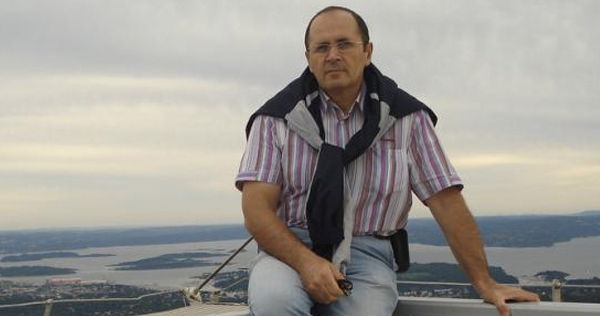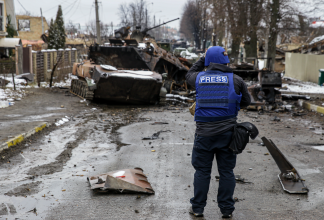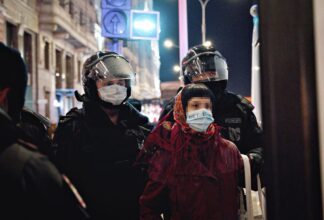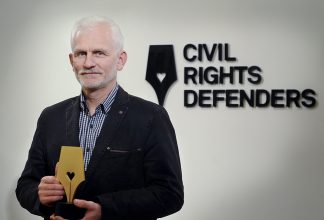Russia: Authorities Should Free Chechen Human Rights Defender Immediately

On his way to work on 9 January 2018, Oyub Titiev, director of Human Rights Center Memorial’s Grozny office, disappeared. Seven hours passed before officials confirmed that he has been detained at the Kurchaloy road police station. He has been charged with unlawful drug possession and, if persecuted, faces up to ten years in prison.
“By all appearances Oyub Titiev’s case is fabricated as a revenge for his human rights work. We demand Russian authorities to drop charges, immediately release Oyub Titiev, and guarantee his safety. Russia’s international partners should keep a close watch on the situation and demand Russian authorities to free Oyub Titiev,” said Joanna Kurosz, Eurasia programme director at Civil Rights Defenders.
Oyub Titiev was detained by road police around 10.30 am on 9 January. He was later delivered to the Kurchaloy road police station in Grozny, the capital of the Russian republic of Chechnya, where he was kept incommunicado for seven hours before the officials confirmed his detention. The police claimed that they had found 180g of marijuana in his car and presented him with charges of unlawful drug possession. If prosecuted, he faces up to ten years in prison. Titiev denies the accusations.
Oyub Titiev took the lead of Human Rights Center Memorial’s Grozny office after the murder of Natalia Estemirova in 2009. Estemirova paid with her life for documenting the cases of torture, kidnappings and extrajudicial killings.
HRC Memorial has done extensive reporting about the grave human rights violations taking place in Chechnya over the years. The sustained, systematic, and grave abuses continue to be perpetrated in a climate of complete impunity. Over the past years, Chechnya’s regime leader, Ramzan Kadyrov, has intensified the persecution of anyone who expresses criticism or deviates in virtually any aspect of life. Punishment of the whole family and relatives, and public humiliation, often in front of TV cameras, is common. Last year, Novaya Gazeta and Memorial reported on dozens of extrajudicial killings of suspected insurgents and collaborators, and Novaya Gazeta exposed mass detentions, cases of torture, and killings of gay men.
Oyub Titiev’s case is strikingly similar to those of two other Chechen activists who were sentenced in retaliation of the work. Both the activist Ruslan Kutaev, and Caucasian Knot’s correspondent Zhalavdi Geriev, were imprisoned similar trumped-up drug charges. Kutaev, imprisoned in 2014, and Geriev, imprisoned two years later, were both tortured in custody.


